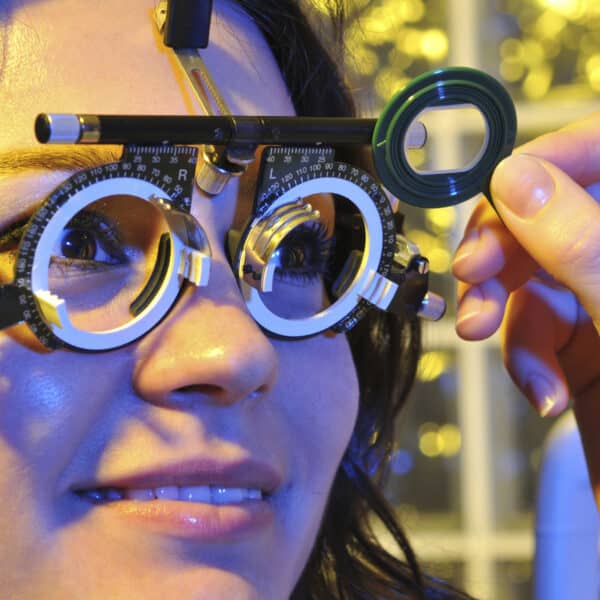
Recent figures from the Local Optical Committee Support Unit (LOCSU) and sight loss charity SeeAbility confirm that just six out of 210 Clinical Commissioning Groups have commissioned longer, adapted sight tests for people with learning disabilities. They add that this leaves nearly one million people with learning disabilities in England without accessible sight tests.
Given that almost two thirds of people with learning disabilities whose sight is tested need glasses, it is clear that more needs to be done to encourage opticians to make necessary adjustments to support these individuals. By adopting the LOCSU Learning Disabilities Pathway, CCGs can ensure that eye testing in the high street is done in a way that is accessible to all.
Adapting the opticians
However, previous attempts to level the playing field in accessing eye tests has relied much on funding longer appointments for people with disabilities. As opticians receive a fee for every eye test they perform, which does not meet their costs of running the business, they rely on the sale of spectacles to boost income. Eye tests need to be relatively speedy, smooth and efficient. The last time I attended my annual eye test, I was processed by three different people, only one of whom was an optician. I applaud this use of skill mix to deliver efficiency, but whilst I managed the transition easily, this would not work for a person with learning disability.
In fact, going to the optician is often extremely traumatic for people with disabilities, notably those with autistic spectrum disorders. Having to wait around, having strangers working in very close proximity, the sensitive nature of the tests and the strangeness of the surroundings can all collide to induce high anxiety. Just making the appointment longer might not really be the answer, when all the individual really wants is to bolt out the door!
Ways to help
One of the pathway’s features is pre-test familiarisation, where the client is introduced to the process of eye testing by small steps and with people they know. Talking about what will happen at the opticians, introducing some of the equipment such as coloured lights, test spectacles and charts can all help demystify the procedure. They also talk about the help carers can give the optician in the form of background information.
Both SeeAbility and the RNIB have a wealth of helpful literature and tools to get staff asking the right questions at an eye test and going prepared to help the optician with the examination. However, central to the whole process is the need to pace and manage the experience for the service user, according to their level of anxiety, tactile defensiveness, understanding and tolerance.
If the optician is on a deadline, as the fee for an enhanced appointment might dictate, the success or failure of the visit might depend on the service user being able to remain calm and cooperative. If they cannot, then the test may well be abandoned.
In working with visually impaired people who also have learning disability, we have come to accept that often small steps can give better outcomes. It might take 20 visits to the same optician, but if these 20 visits achieve the client being able to look at the field testing machine for long enough to provide a reading, then it’s a win. The problem is, there is no value to a high street business of 20 short and fruitless visits to achieve one fruitful one.
Perhaps we need to think outside the box about what constitutes an enhanced service. Maybe more time is not the only answer, even if it does bring the more attractive fee.



